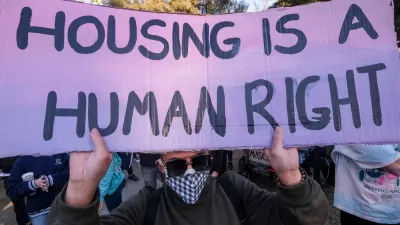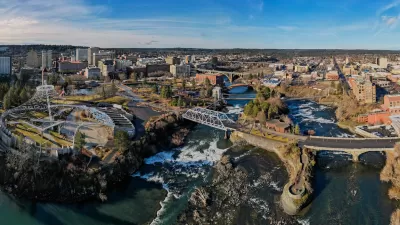Nonprofit housing developers are able to succeed at what often seems impossible. Nonprofits all want the projects done faster and better, but is all the well-meaning input from the activists and intellectuals just more mud in in a dragging field?
"Housers catch flak from every side," John Davis writes.
Davis says, "Public funders wonder when nonprofit organizations that build housing for families too poor to buy or to rent on the open market are ever going to get their production counts up and their unit costs down. Private foundations worry whether their grantees will ever become self-sufficient, depending less on them for operating support.
Advocates for tenants demand housing with lower rents. Advocates for persons with disabilities demand housing with accessibility and services. Advocates for the homeless demand housing for the poorest of the poor. Activists in neighborhoods where housers are already at work vociferously insist on lower density and larger units for “responsible homeowners” rather than for subsidized renters.
But not leaving himself free of blame, "And armchair warriors like me blithely chide community land trusts, limited equity cooperatives, and other developers of shared equity housing for not being bolder in sticking up for themselves, trumpeting the virtues of the tenures they champion."
Davis argues, "Housers are, in fact, among the bravest people I know."
FULL STORY: The Impossible Takes a Little Longer

Maui's Vacation Rental Debate Turns Ugly
Verbal attacks, misinformation campaigns and fistfights plague a high-stakes debate to convert thousands of vacation rentals into long-term housing.

Planetizen Federal Action Tracker
A weekly monitor of how Trump’s orders and actions are impacting planners and planning in America.

In Urban Planning, AI Prompting Could be the New Design Thinking
Creativity has long been key to great urban design. What if we see AI as our new creative partner?

King County Supportive Housing Program Offers Hope for Unhoused Residents
The county is taking a ‘Housing First’ approach that prioritizes getting people into housing, then offering wraparound supportive services.

Researchers Use AI to Get Clearer Picture of US Housing
Analysts are using artificial intelligence to supercharge their research by allowing them to comb through data faster. Though these AI tools can be error prone, they save time and housing researchers are optimistic about the future.

Making Shared Micromobility More Inclusive
Cities and shared mobility system operators can do more to include people with disabilities in planning and operations, per a new report.
Urban Design for Planners 1: Software Tools
This six-course series explores essential urban design concepts using open source software and equips planners with the tools they need to participate fully in the urban design process.
Planning for Universal Design
Learn the tools for implementing Universal Design in planning regulations.
planning NEXT
Appalachian Highlands Housing Partners
Mpact (founded as Rail~Volution)
City of Camden Redevelopment Agency
City of Astoria
City of Portland
City of Laramie





























